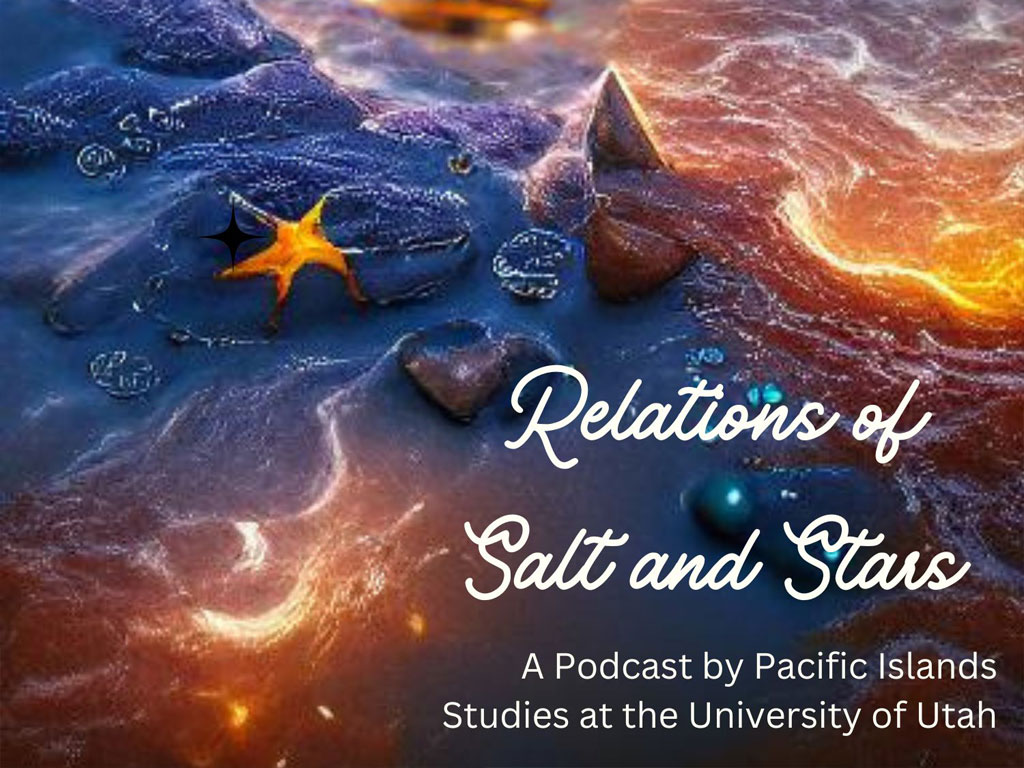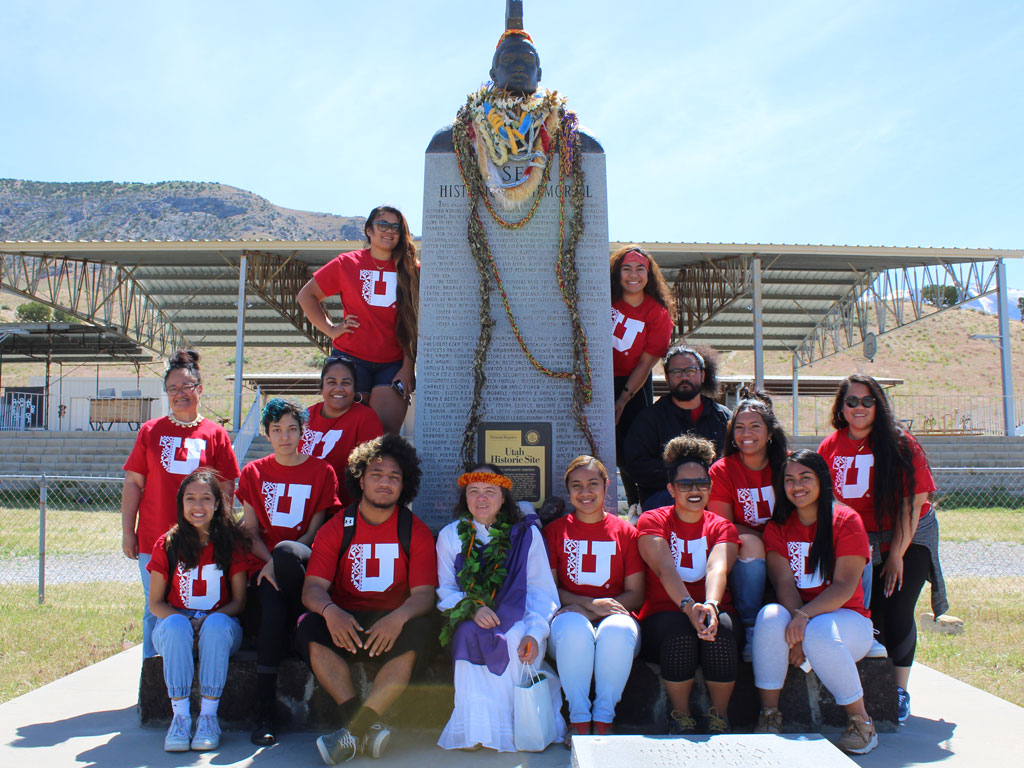The Pacific Islands Studies Program
Pacific Islands Studies provides courses that center Indigenous Pacific Islander perspectives and provide a more nuanced understanding of historical and contemporary concerns in Oceania as they relate to diasporic issues locally. Salt Lake City’s Pacific Islander population, which is one of the oldest on the continental US and one of the largest per capita, offers a unique opportunity to explore the intersections of the global and the local in this interdisciplinary program.
Given our unique position, Pacific Islands Studies at the U focuses on connecting Indigeneity, defined as the relationship of autochthonous peoples to their homelands, languages, ceremonial cycles and sacred histories, to migration, travel, and diaspora – global processes that structure contemporary Pacific Islander experiences and structure relationships to the past.
Pacific Islands Studies Core Course Requirements
The Pacific Islands Studies program offers an interdisciplinary undergraduate certificate.The Pacific Islands Studies interdisciplinary undergraduate certificate provides courses that expose students to significant topics in the histories, politics, and cultures of Indigenous Pacific Islander peoples (including peoples from Melanesia, Micronesia and Polynesia). The certificate complements any major or minor, helps you fulfill general education requirements, and allows you to integrate Pacific Islander knowledges into any career!
-
COURSE #CLASS TITLECREDIT HOURSETHNC 2590Pacific Islander American Experiences3 Credit HoursETHNC 3651Histories of the Pacific Islands3 Credit HoursETHNC 3671Gender and Colonialism in the Pacific3 Credit HoursGNDR 3671Gender and Colonialism in the Pacific (3)3 Credit Hours
-
COURSE #CLASS TITLECREDIT HOURSETHNC 5910Advanced Explorations in Ethnic Studies3 Credit HoursANTH 5960Ethnographic Field School in the Kingdom of Tonga3-6 Credit Hours

Relations of Salt and Stars
Relations of Salt and Stars is a new podcast that considers how to build good relations – with the communities we come from in Oceania, the communities we live with here in the Salt Lake City area, and especially the Indigenous communities whose lands we live on.
Pacific Islands Studies Newsletter
Subscribe to receive the official newsletter of Pacific Islands Studies at the University of Utah. This monthly newsletter shares Pacific Islander resources, events, and updates directly to your inbox.

Noteworthy
Salt Lake City is home to one of the oldest and largest Pacific Islander populations per capita in the continental U.S.
The University of Utah established the Pacific Islands Studies program in 2017.
$1.6 million: Grants over the past five years to support program development and create a Center for Pasifika and Indigenous Knowledges.
“Through my coursework in Transform and my work with the Pacific Islands Studies Initiative, I found a home on campus. Working with great leaders and mentors, I’ve learned the extent of my capabilities and the mana that lives in our community. After graduating I hope to serve my Pacific Islander community.”
-Oliva Joylani Kavapalu, Class of 2022
Transform Programs
The strength of our divisions and programs comes from our interdisciplinarity and our intersectional approach to historical, cultural, political
and lived realities in today's world.
ETHNIC
STUDIES
Our Ethnic Studies program will expand your understanding of issues affecting underrepresented communities.
DISABILITY
STUDIES
Disability Studies is an interdisciplinary field that explores social, political, cultural, and economic factors that shape disability.
GENDER
STUDIES
Gender Studies offers a space for the study of a wide range of feminist thought, practices, theory and community-engaged learning.
PACIFIC ISLANDS
STUDIES
The Pacific Islands Studies program provides courses that are designed from an Indigenous Pacific islander perspective.

TRANSFORM YOUR DEGREE
Whether you want to take a broad approach or focus on a specific group or community, we’ve got you covered! Our majors, minors and certificate programs allow you to expand your understanding of issues affecting marginalized groups and underrepresented communities.
